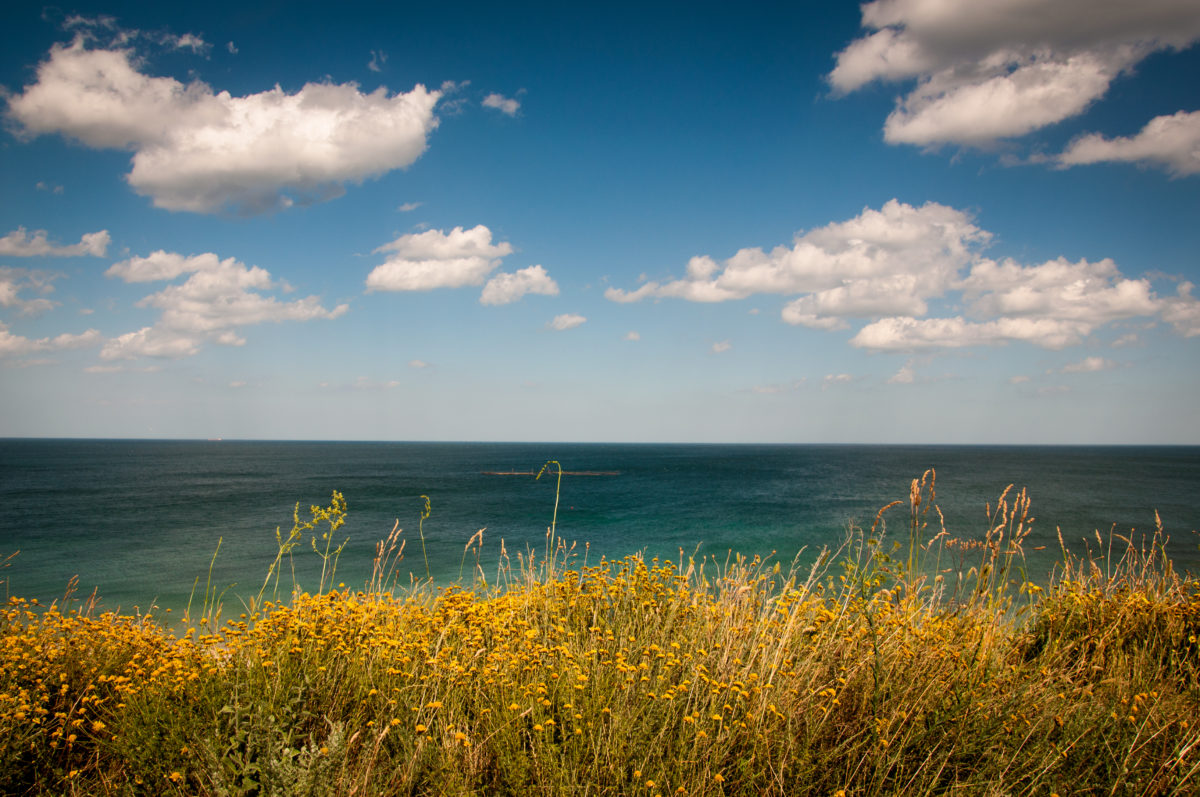No sooner does one election cycle end these days than another begins. Into the midst of this year’s numerous campaign announcements drop the semi-continuous readings from the books of Samuel and Kings. Throughout the summer, these stories of Judah’s rulers offer modern themes in ancient garb, illustrating the power inherent in governance, power that can produce great good, but often simply seeks out gain.
Biblical writers didn’t hesitate to criticize power-mongering among their own civic leaders. When Israel’s elders demanded a king, the prophet Samuel confronted them with subjection’s realities: the king would claim their sons and daughters, fields, vineyards, livestock, and their own labor and bodies. Seeing these warnings fulfilled even by Judah’s most beloved kings, we may feel gratitude for democratic controls that help limit abuses today. Yet we know how vulnerable such controls can be.
For instance, more money will be spent on the next U.S. national election than any in history, perhaps more than twice as much as in 2012. Five billion dollars, with the Koch brothers alone accounting for nearly $1 billion. This isn’t really $5 billion that could have been spent on feeding the world’s hungry, eliminating war, or mitigating climate change — or is it?
While enormous sums are spent jockeying for power, year by year the earth’s climate future becomes more critical. What everyone needs to know about climate change is straightforward:
- It’s real;
- It’s us;
- It’s serious;
- It’s time-sensitive; and
- It’s solvable, with effort.
This year, as part of the U.N. Conference of the Parties 21 (COP 21) meeting in Paris to ratify 196 countries’ national goals for reducing greenhouse gas emissions, developed nations are pledging to a Green Climate Fund to help developing nations mitigate and adapt to climate change. This fund is only right, since poorer nations that contribute the least to carbon pollution are suffering the most from climate disruptions. It’s also rational, since money can go farther in developing nations than here, reducing emissions by 25 times as much per dollar in the one atmosphere that we share.
The U.S. has pledged $3 billion, which sounds like a princely sum, until we recognize that less than 1% of the U.S. national budget goes to foreign aid, and this pledge is only 1% of that <1%. Moreover, it’s little more than half of what candidates plan to spend simply on getting elected.
Several themes in this month’s lectionary offer guidance for preachers helping congregations grasp the moral and religious imperatives guiding our environmental efforts:
Intrigues of political power, as mentioned above:
- 1 Samuel 8:4-11, (12-15), 16-20, (11:14-15) (June 7) narrates Samuel’s warnings to the Israelites about the excesses of kingship.
- 1 Samuel 15:34 – 16:13 (June 14) tells of Samuel’s complicated political machinations, anointing a new king while another still reigns.
- 1 Samuel 17:(1a, 4-11, 19-23), 32-49 (June 21) offers hope to many who face giant challenges and great odds by recounting the story of David’s defeating Goliath with daring use of basic tools.
- 1 Samuel 17:57-18:5, 18:10-16 (June 21 alt.) describes the daily political danger David faced, despite his popularity.
- 2 Samuel 1:1, 17-27 (June 28) offers David’s lament after Saul’s death, a haunting reminder of war’s sorrows.
Nature’s overwhelming power, larger than human control:
- Job 38:1-11 (June 21 alt.) recounts God’s questioning Job from the whirlwind, emphasizing human inability to comprehend the natural world’s intricate wonders.
- Psalm 107:1-3, 23-32 (June 21 alt.) celebrates God’s command of a chaotic storm at sea that overwhelms human travelers.
- Mark 4:35-41 (June 21) reinforces our own lack of control over nature by recounting the disciples’ incredulity when even the storm obeyed Jesus.
Nature’s renewing qualities, particularly the growth of sturdy trees that give to other species:
- Ezekiel 17:22-24 (June 14 alt.) tells a parable of God’s planting a sprig that becomes a noble cedar, providing shelter and fruit for every kind of bird.
- Psalm 92:1-4, 12-15 (June 14 alt.) compares the righteous to a flourishing palm or cedar tree, producing fruit even in old age.
- Mark 4:26-34 (June 14) compares God’s realm to the growth of a seed into grain, and to a mustard seed that, like Ezekiel’s cedar, grows to offer hospitality to many different birds.
- Psalm 133 (June 21 alt.) compares human community to refreshing oil and the dew on Mount of Hermon.
Boldness and faith in action:
- Psalm 20 (June 14) celebrates not military strength but God’s strength — and therefore the strength of faith.
- 2 Corinthians 5:6-10, (11-13), 14-17 (June 14) conveys Paul’s passion for the gospel and his conviction of walking “by faith, not by sight.”
- 2 Corinthians 6:1-13 (June 21) describes the equanimity and determination with which Paul and his companions face hardship for the gospel’s sake.
- Lamentations 3:22-33 (June 28 alt.) exemplifies hope in God even in the midst of desperate circumstances.
- Psalm 30 (June 28 alt.) joyfully celebrates God’s restoration after a time of profound doubt.
- Mark 5:21-43 (June 28) describes Jesus healing a long-endured illness and raising a child from death, while emphasizing faith in both instances.
Above all, 2 Corinthians 8:7-15 (June 28) encourages financial generosity to relieve the suffering of others elsewhere: “For you know the generous act of our Lord Jesus Christ, that though he was rich, yet for your sakes he became poor … It is a question of a fair balance between your present abundance and their need.” Other passages likewise convey divine generosity:
- Psalm 138 (June 7) celebrates God’s regard for the lowly.
- Psalm 9:9-20 (June 21) recounts poetic justice as the wicked are snared in their own hands’ works, but the poor find justice.

